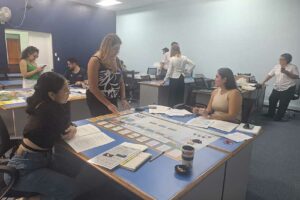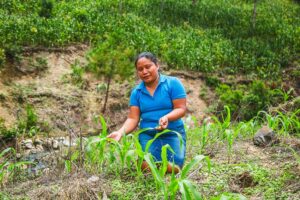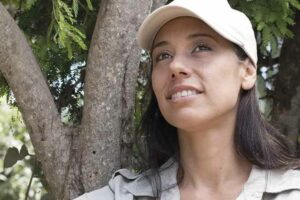34 Young Professionals from Latin America and the Caribbean Begin Their Graduate Studies at CATIE
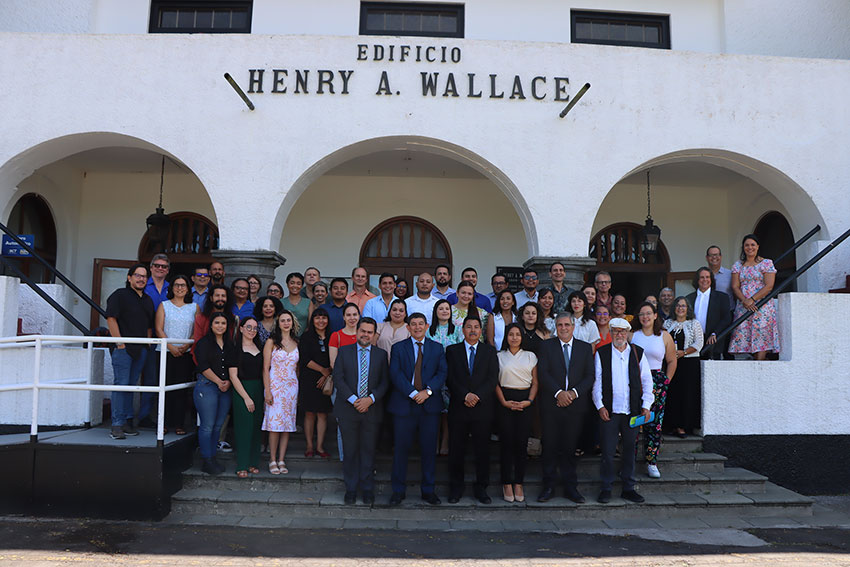
- A diverse generation from 13 countries will be trained in sustainable agroforestry, climate change, and tropical forest management.
CATIE (Tropical Agricultural Research and Higher Education Center) commenced the 2025-2026 academic cycle of its Graduate School on March 7, during a ceremony held in the Former Directors' Hall of the Henry A. Wallace Building.
The event featured Roberto Camacho, Director of the National Institute of Agricultural Technology (INTA) and member of CATIE's Board of Directors, as the guest of honor. Also in attendance were Dr. Luis Pocasangre, CATIE's Director General; Alfredo Zamarripa, Dean of CATIE’s Graduate School; Fernando Casanoves, Director of CATIE's Education Division; Lasmit Cerón, Engineer and Representative of CATIE’s Student Council; members of the faculty; and special guests.
CATIE’s Graduate School is committed to promoting equitable access to knowledge and learning opportunities. "We take this policy seriously, ensuring equitable access so that both women and men can pursue graduate studies," stated Alfredo Zamarripa, Dean of the Graduate School.
This year's cohort comprises 34 students—20 women and 14 men—from Latin America and the Caribbean. They will strengthen their academic training in an international environment that fosters knowledge exchange and shared experiences.
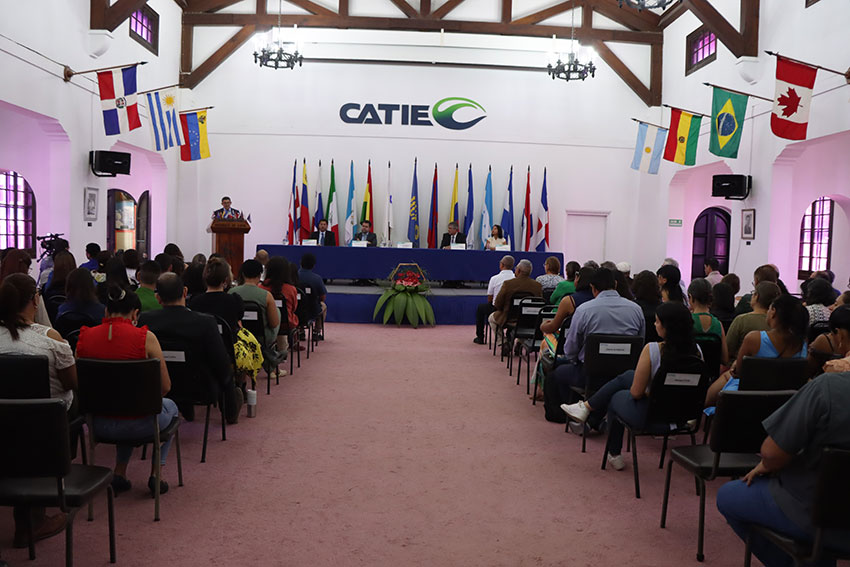
During the inaugural ceremony, Dr. Pocasangre addressed the new students:
"I know CATIE’s history of working on projects—each with a beginning and an end—but the Graduate School is forever. It is the driving force that keeps us united, which is why we are committed to strengthening it with great pride. I firmly believe in the university trilogy, where the most important elements are the students, the dedicated educators, and the campus itself. The beauty of CATIE is unparalleled," stated Dr. Pocasangre.
Additionally, the signing of the INTA-CATIE cooperation agreement was announced, allowing INTA professionals to join the 2025-2026 cohort. “We have selected six individuals to begin,” added Dr. Pocasangre, who also expressed gratitude to the Ministry of Agriculture and Livestock for its continued support in education.
Dean Zamarripa also highlighted CATIE’s high-quality infrastructure and its impact on professional training:
"I congratulate you on this excellent decision. At CATIE, you will have access to one of the best libraries in the Americas, a germplasm bank, greenhouses, a botanical garden, and laboratories for scientific research. I encourage you to put forth all your effort, dedication, and passion in this journey, as you will be the generation driving major changes in the agri-food system," said Zamarripa.
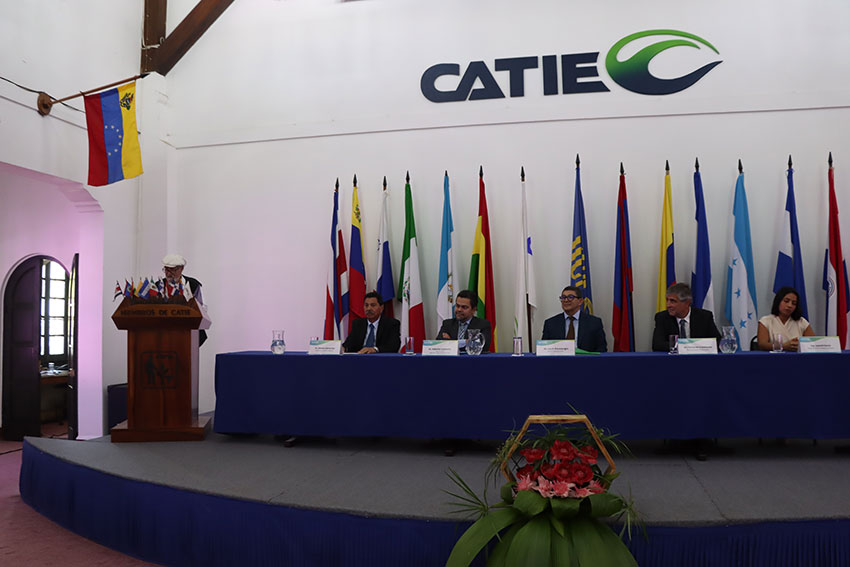
Furthermore, Dr. Ronnie Camino, Professor Emeritus at CATIE, delivered an inspiring message to the new students, emphasizing the privilege and responsibility that come with this academic endeavor, grounded in human values. “You have chosen a challenging path, but if this is what you love, it won’t feel like a burden—it will be a source of happiness. We must all work together towards our personal goals and those of a world undergoing serious political, social, and technological changes. Sometimes, we must go with the flow, and at other times, we must go against it,” he stated.
About the Protagonists: The Students
During the event, CATIE’s faculty was introduced to the new group of students, who are embarking on an academic journey through three master's programs: Agroforestry and Sustainable Agriculture; Management and Conservation of Tropical Forests and Biodiversity; and Economics, Development, and Climate Change.
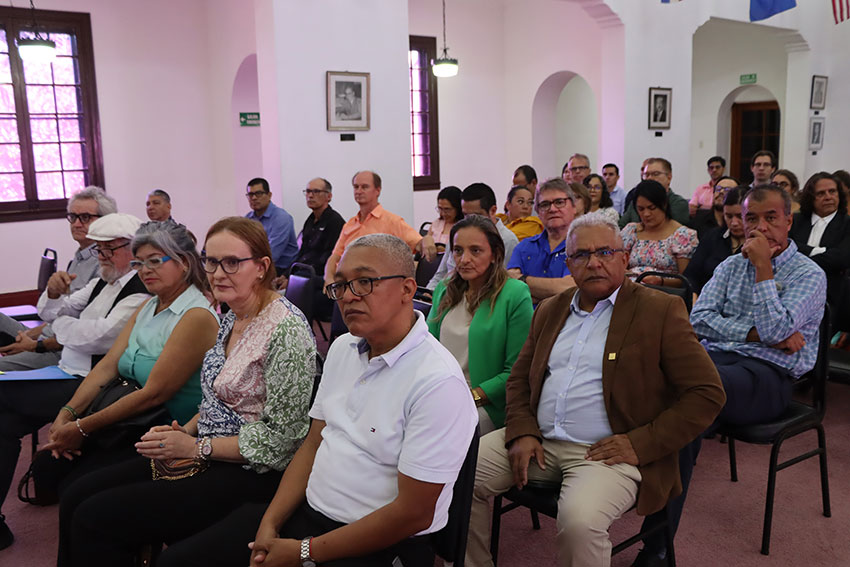
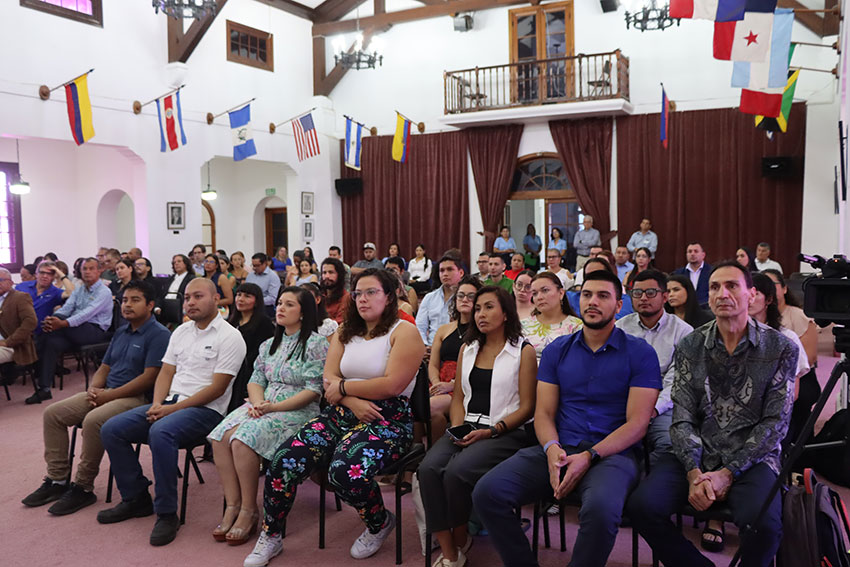
Many of them have received scholarships from various international organizations, such as the Inter-American Institute for Cooperation on Agriculture (IICA) and the Ministry of Higher Education, Science, and Technology of the Dominican Republic (MESCyT).
Among the new students, Camil Valentín from Puerto Rico shared her excitement about this new phase: "For the past three years, I have worked as a sustainable agriculture teacher using the Montessori methodology, teaching primary and secondary school students. Joining CATIE is a great opportunity to strengthen my agroforestry project, Huerta Libre, with technical knowledge," she said.
Meanwhile, José Pablo Martínez from Spain shared his experience and motivation:
"I have spent 25 years working in Honduras and Nicaragua on reforestation and community development projects. I felt the need to update my knowledge to tackle current challenges in natural area management and rural development. My goal is to contribute to conservation without negatively impacting communities."
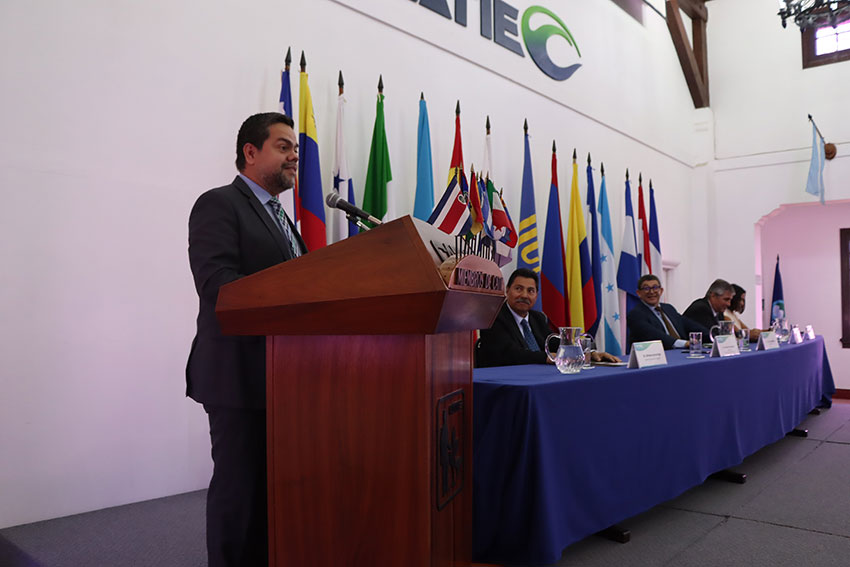
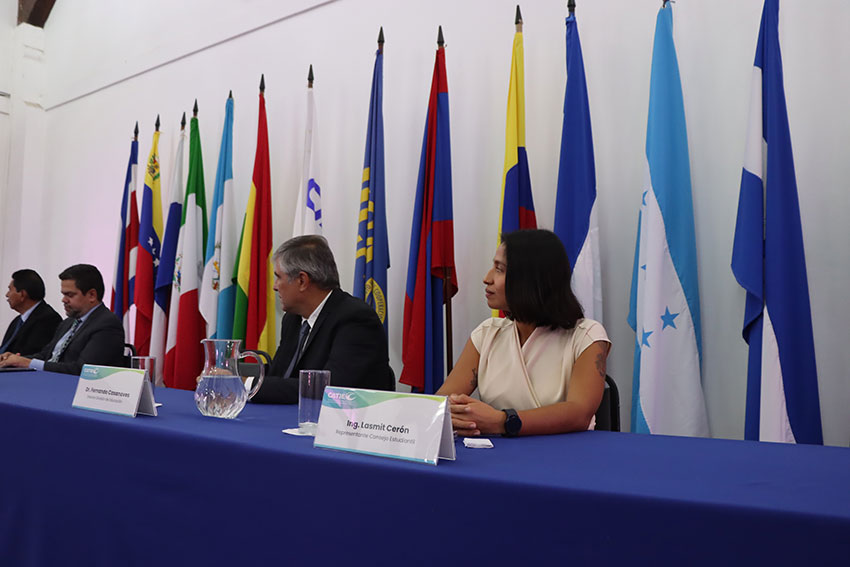
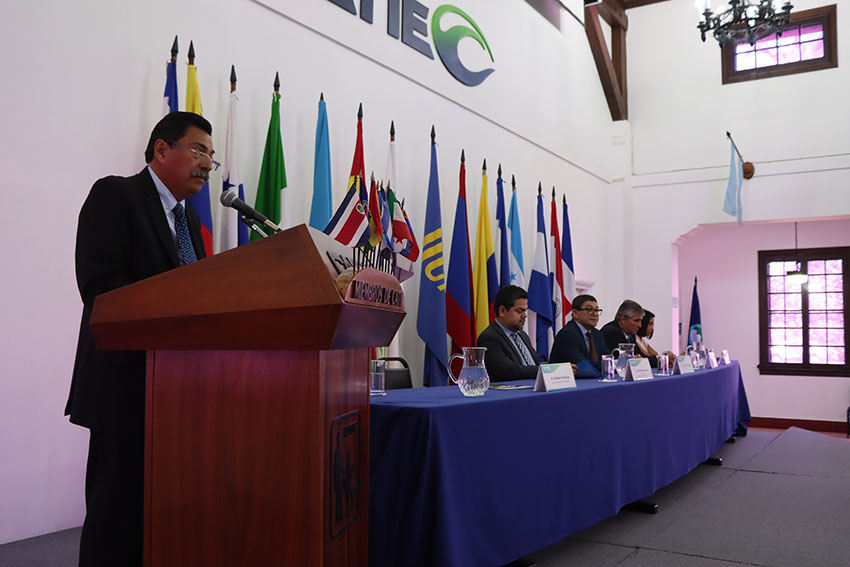
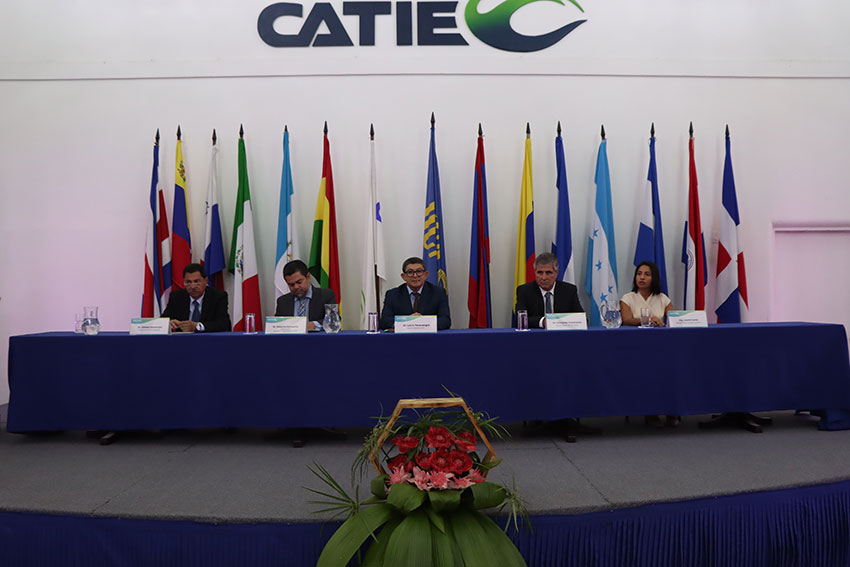
Written by:
Karla Madrigal Pereira
Communicator
Communications and Marketing Office
CATIE
karla.madrigal@catie.ac.cr

